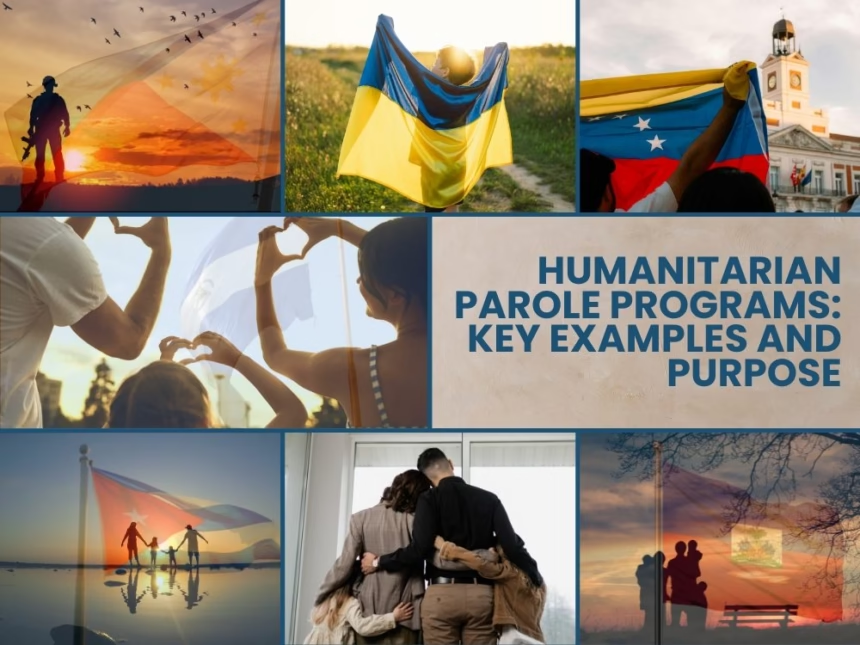The U.S. Court of Appeals for the First Circuit, based in Boston, Massachusetts, is scheduled to hear oral arguments on Tuesday, July 29, 2025, concerning the Biden administration’s humanitarian parole program—commonly referred to as the CHNV program (for nationals of Cuba, Haiti, Nicaragua, and Venezuela).
A panel of three appellate judges will consider whether the early termination of parole for already-approved CHNV recipients was lawful. At this stage, this is the sole issue under appeal in the ongoing litigation.
During the hearing, attorneys for the plaintiffs will argue that prematurely ending humanitarian parole for CHNV beneficiaries violates federal law and will urge the Court to uphold a prior district court ruling in their favor. That ruling found that the Trump administration’s decision to halt the parole process for certain approved individuals was unlawful. Each side will have 20 minutes to present arguments before the judges pose questions.
While the U.S. Supreme Court issued a stay in May that temporarily blocked the district court’s ruling—allowing the administration to pause admissions—the upcoming hearing marks a significant legal milestone. It could lay the groundwork for relief for thousands of CHNV recipients. A decision from the appellate panel is not expected immediately, according to the Justice Action Center (JAC), which will be arguing on behalf of the plaintiffs.
Following the appellate hearing, a separate proceeding is scheduled for July 30, 2025, before U.S. District Judge Indira Talwani to assess the status of the broader case. That hearing will be held via videoconference.
In a statement released last week, the Justice Action Center reaffirmed its commitment to ensuring that the federal government resumes processing immigration benefits for CHNV beneficiaries, as ordered by the court on May 28. Despite the court order, JAC lawyers say many plaintiffs have yet to see progress in their cases.
“Over the past several weeks, including very recently, we have submitted evidence to the court showing that many class members still haven’t seen movement on their immigration applications,” the organization stated. Both government and plaintiffs’ attorneys will participate in the videoconference. JAC expressed hope that the upcoming hearing will yield clearer information regarding the status of immigration benefit processing, which could soon be communicated to those affected.
Meet the Judges: Gelpí, Kayatta, and Montecalvo
The three-judge panel overseeing Tuesday’s hearing consists of federal judges appointed by Democratic presidents: Gustavo A. Gelpí, William Joseph Kayatta Jr., and Lara E. Montecalvo.
Judge Gustavo A. Gelpí has a long tenure in the federal judiciary. He was first appointed as a U.S. Magistrate Judge in Puerto Rico in 2001. In 2006, President George W. Bush elevated him to the U.S. District Court for the District of Puerto Rico, where he later served as Chief Judge from 2018 to 2021. On May 12, 2021, President Joe Biden nominated him to the First Circuit Court of Appeals to fill the vacancy left by the late Judge Juan R. Torruella, who passed away in 2020.
Judge William Joseph Kayatta Jr. joined the First Circuit in February 2013 after being nominated by President Barack Obama. After more than a decade on the bench, he assumed senior status on October 31, 2024.
Judge Lara E. Montecalvo is the most recent appointee on the panel, having joined the First Circuit in September 2022 following her nomination by President Joe Biden.
These three judges now serve on one of the nation’s most influential appellate courts, which covers New England and Puerto Rico.
While federal judges are expected to remain impartial, legal scholars often note that their rulings can align ideologically with the presidents who appointed them. Notably, although Judge Gelpí was initially appointed to the bench by President Bush, his elevation to the appellate court was the result of a nomination by President Biden. The other two judges—Kayatta and Montecalvo—were appointed directly by Democratic presidents.
https://ctninfo.com/?p=35799&preview=true







